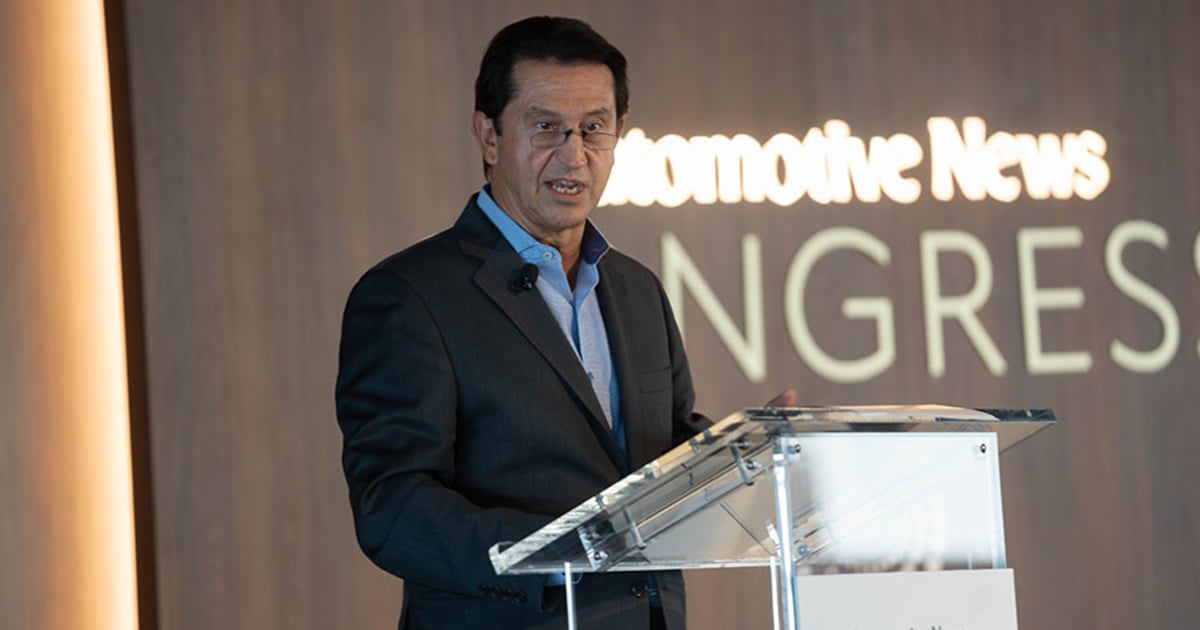
Hyundai Motor Co. is showing its EV prowess at the Los Angeles Auto Show this week with the debuts of the Hyundai Ioniq 6 sedan and Genesis X Convertible concept, but the automaker’s rapid U.S. growth is also driven by transitional vehicles such as hybrids, said Jose Muñoz, the automaker’s global COO.
Hyundai Motor Group, including Kia, is the No. 2 electric vehicle seller in the U.S. behind Tesla, but it’s also rapidly growing market share and delivering record profit to dealers by providing a wide range of future-forward vehicles, Muñoz said.
“We at Hyundai thought about how we navigate the transition,” Muñoz said Friday at the Automotive News Congress in Los Angeles. “Based on the information we get from our customers, not all are ready to transition to an EV in just one shot.”
In addition to his global role, Muñoz is CEO of Hyundai and Genesis Motor North America.
“We decided to invest in hybrid, hybrid plug-in and electric at the same time,” Muñoz said. “This has given us a great conquest tool to bring customers from other brands. They think about the future, but they want to be sure.”
Hyundai hybrid buyers, he added, are Hyundai EV buyers.
Hyundai’s investments in EVs are paying off with growing U.S. market share while already achieving profitability, Muñoz said during a question-and-answer session with Automotive News Publisher KC Crain.
But the Biden administration’s Inflation Reduction Act fundamentally changed federal EV incentives, removing Hyundai and other automakers that make their EVs outside North America.
Muñoz noted that the law was announced in August after Hyundai Motor Group had already pledged to spend $10 billion in the U.S. for EV projects through 2025, including a new factory in Georgia.
“This was really disappointing for us,” Muñoz said. “Here we are in August, and all of the sudden our cars don’t qualify” for the $7,500 incentive Hyundai vehicles had been receiving based on the previous federal program that now expires Dec. 31.
The loss of EV incentives was a blow to Hyundai’s electrification strategy, Muñoz said.
Hyundai is in discussions with the Biden administration as government agencies work out the exact rules of the new incentive program, Muñoz said.
A solution that Hyundai favors, Muñoz added, would be to implement a three-year transition period for the phaseout of its incentives, giving the automaker time to build its U.S. assembly plant and joint venture battery plant.